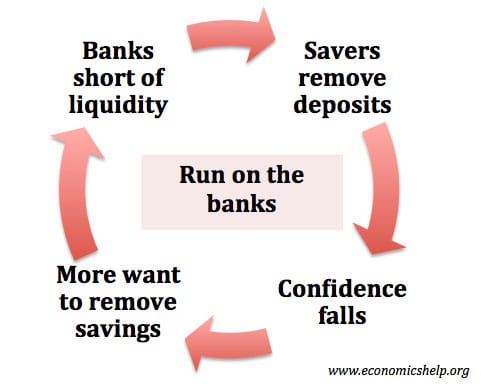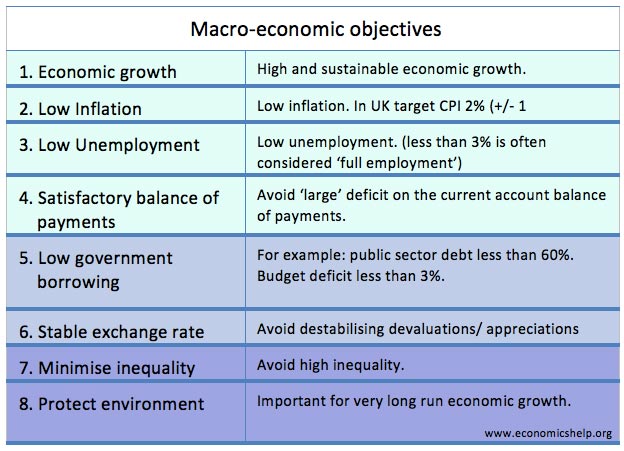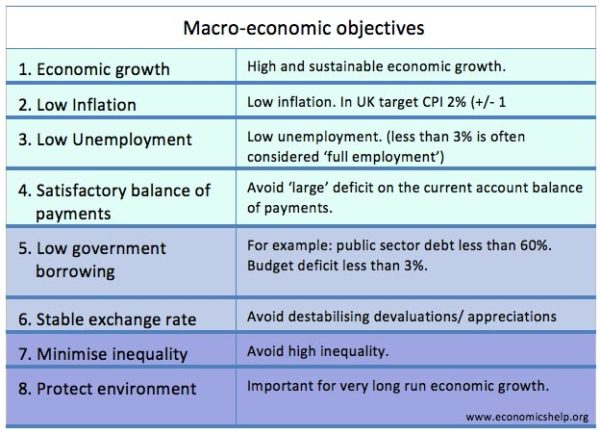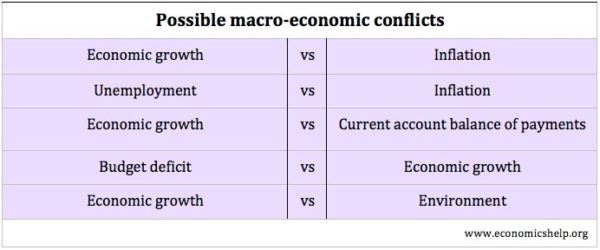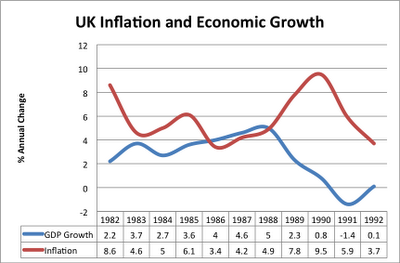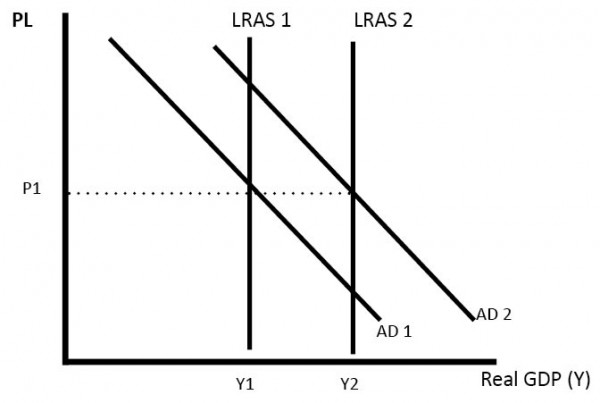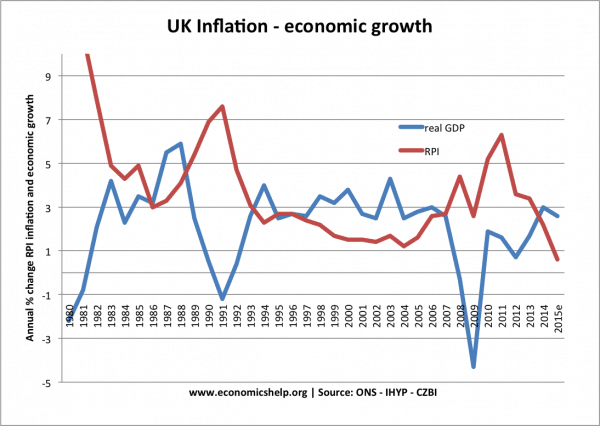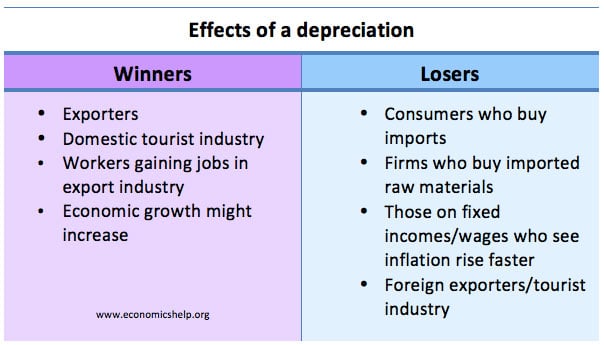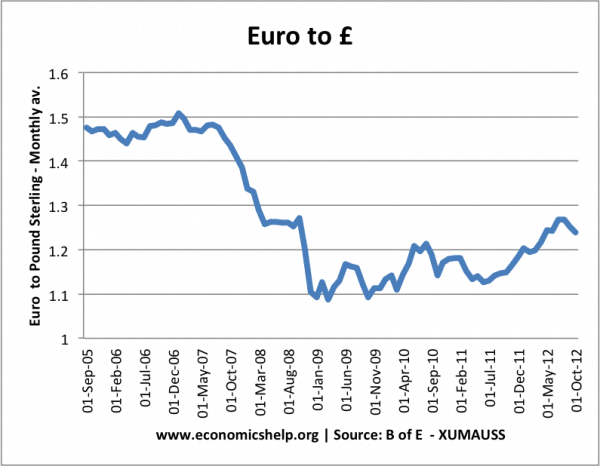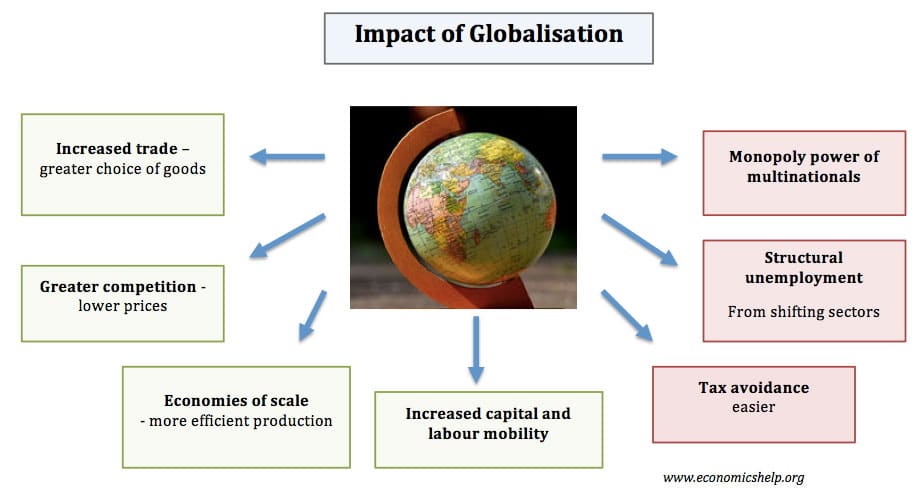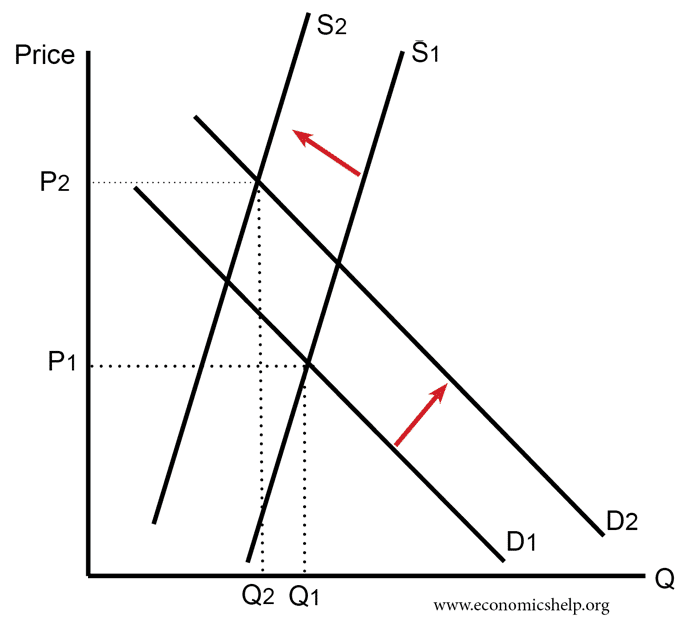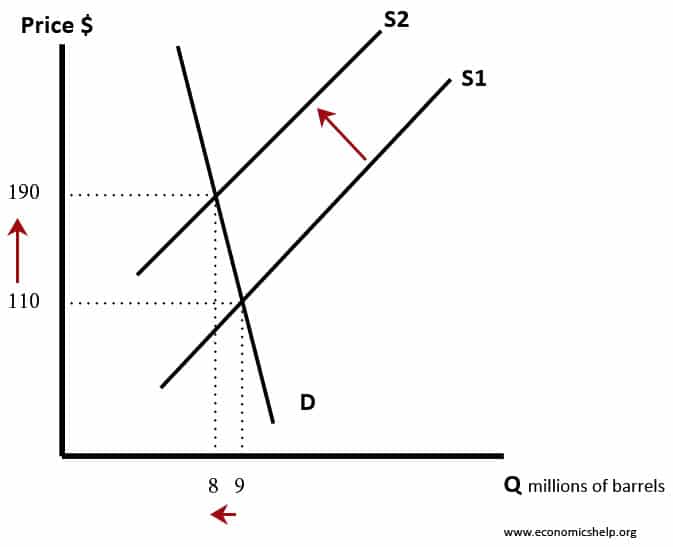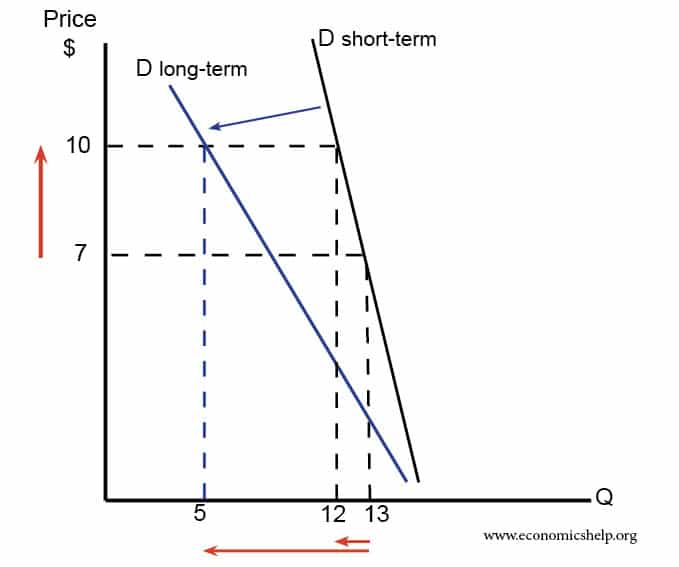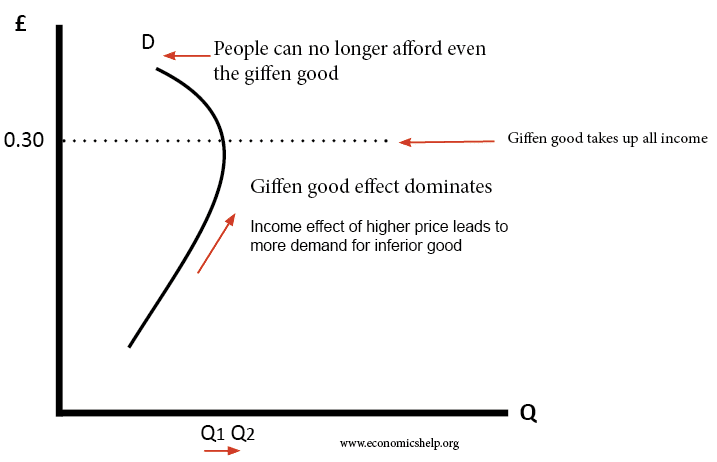The main macro-economic objectives
- Economic growth – positive and sustainable growth (The UK, long-run trend rate is around 2.5%)
- Low inflation (UK target 2% +/-1) –
- Low unemployment / Full employment (e.g. around 3%)
- Current account – balance of payments. Satisfactory position (i.e. avoid unsustainable current account deficit)
- Low government borrowing/public sector debt.
- Exchange rate stability
Some economists also consider:
- Issues of equity (avoid inequality)
- Environmental factors (long-run environmental sustainability)
Conflicts of macro-economic objectives
1. Economic growth vs inflation
One macro-economic conflict can come between economic growth and inflation (which leads to a similar conflict between unemployment and inflation). If there is rapid economic growth, it is more likely that inflationary pressures will increase. Inflation is particularly likely to occur when growth is above the long run trend rate, and AD increases faster than AS.
When the economy is growing very quickly, firms have difficulty employing sufficient skilled labour; this can lead to wage inflation and higher wages cause higher prices. Also, if demand grows faster than supply, firms will respond to shortages by putting up prices.
Inflationary growth
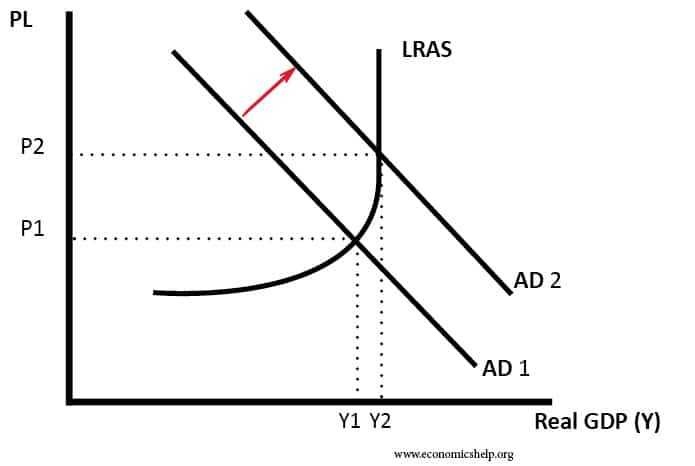
In this diagram, there is an increase in AD, when the economy is close to full capacity. We get an increase in real GDP but also an increase in the inflation rate.
Example of conflict between economic growth and inflation
In the late 1980s during the Lawson boom, the UK experienced a high rate of economic growth (4-5% a year). This growth rate was above the long run trend rate of growth but caused inflationary pressures to increase. Also if growth is very quick, there may be supply constraints pushing up commodity price increases. This economic boom of the 1980s proved unsustainable and ultimately led to the recession in 1991 (as the government increased interest rates to try and control inflation.
Low inflationary growth
However, it is possible to have economic growth without causing inflation. If growth is sustainable – if it is close to the long run trend rate, then LRAS will increase at the same rate as AD, and therefore, we will not see inflation.
Economic growth without inflation. AD and LRAS increasing at the same rate.
The UK between 1993-2007, had a long period of economic expansion. But, this prolonged economic growth did not cause inflation. This is sometimes known as the great moderation.
The UK great moderation from 1992 to 2008 – low inflation, positive economic growth.

